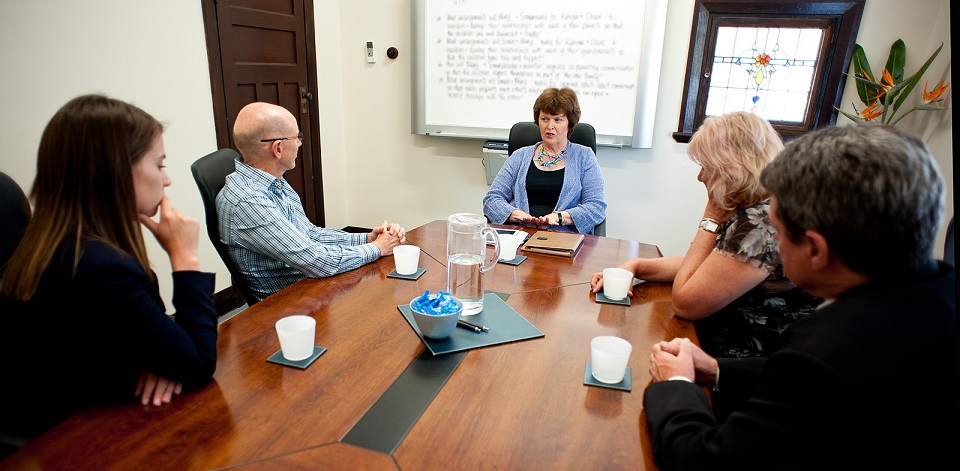Areas of Practice
I mediate disputes and facilitate decision-making across the whole spectrum of settings.
Mediation and decision-making are highly transferable from one setting to another because each is a process guided by a set of principles. What they each have in common is people who are ready to move on. Each mediation is, however, unique to each set of circumstances. In almost 20 years of mediating, I have not yet mediated in circumstances that remind me of a previous mediation.
I welcome your email or phone call to discuss your specific questions and concerns.
Interpersonal and Relationship
Conflict between you and others typically has two main underlying triggers: change and lack of change! To manage change in your life: to slow it down, to speed it up, to influence the type and direction of change, people tend to decide on their preferred outcome and if challenged, they defend it. To defend their preferred outcome people are likely to claim what they believe to be their rights and to exercise what they believe to be their authority. In a democratic society each person has the same rights (unless or until they legally lose them), so when people defend their preferred outcomes, rights tend to clash. Similarly, in an egalitarian society, each person has the same authority, so when people defend their preferred outcomes, there tends to be a power struggle.
Conflict often does not make sense. People therefore react through emotions rather than by thinking.
Mediation is a principled process that guides participants to practical, durable outcomes that are satisfactory for all. Aspects of interpersonal and relationship circumstances that I often mediate include:
|
|
Aged Care, Apology, Child Migrant, Defamation, Disability, Discrimination, Elder, Employment, Interpersonal, Institutional, Inheritance, Reparative, Reconnection, Sexual Harassment, Sexual Abuse, Wills, Youth
|
|
You can read selected Case Studies here.
Back to top

Family and Extended Family
Conflict within families can be an intensive version of interpersonal and relationship conflict. Family relationships are often intimate and can be complex. The clash of rights and the struggle for power often affect people’s sense-of-self, their hopes and their fears in a way that is more acute than it would be outside the family. Emotions can run very high.
Mediation is a principled process that guides participants to practical, durable outcomes that are satisfactory for all. Aspects of family and extended family circumstances that I often mediate include:
|
|
Aged Care, Child Support Payment, Child Protection, Children’s Living Arrangements, Elder, Estate Planning, Family Business, Family Dispute Resolution, Inheritance, Parenting, Property, Reconnection, Separation, Sexual Abuse.
|
|
You can read selected Case Studies here.
Back to top

Business and Commercial
Like interpersonal conflict, commercial and business disputes have their origins in entitlement and authority which manifest in clashing rights and power struggles. Sometimes business and commercial conflict is felt less acutely than family and interpersonal conflict because the people involved are participating on behalf of an impersonal entity. Sometimes however, people’s sense-of-self is closely linked to their business and/or commercial setting so the conflict is felt as strongly as if it were a personal matter.
Mediation is a principled process that guides participants to practical, durable outcomes that are satisfactory for all. Aspects of commercial and business circumstances that I often mediate include:
|
|
Business to Business, Bullying, Commercial Contracts, Employment, Elder, Family Business, Franchising, Industrial Relations, Succession, Tax, Tenancy, Insurance, Property, Sexual Harassment, Succession, Workplace.
|
|
You can read selected Case Studies here.
Back to top

Margaret, participants and their lawyers Image Credit: Dale Neill

Community and Government
Where there are people, there is conflict because each person is unique. Disputes in community and government settings are sometimes depersonalized. On one hand this can result in a dispassionate, methodical resolution of conflict. On the other hand it can result in heavy handed use of rights and authority due to the objectifying of disputants. For example “The shire makes the rules without consultation …”, “The government is telling me I must pay …”.
Mediation is a principled process that guides participants to practical, durable outcomes that are satisfactory for all. Aspects of community and government circumstances that I often mediate include:
|
|
Apology, Disability, Education, Elder, Government, Neighborhood, Public Policy and Process, Sexual Harassment, Sport & Recreation, Telecommunications, Victim Offender.
|
|
You can read selected Case Studies here.
Back to top